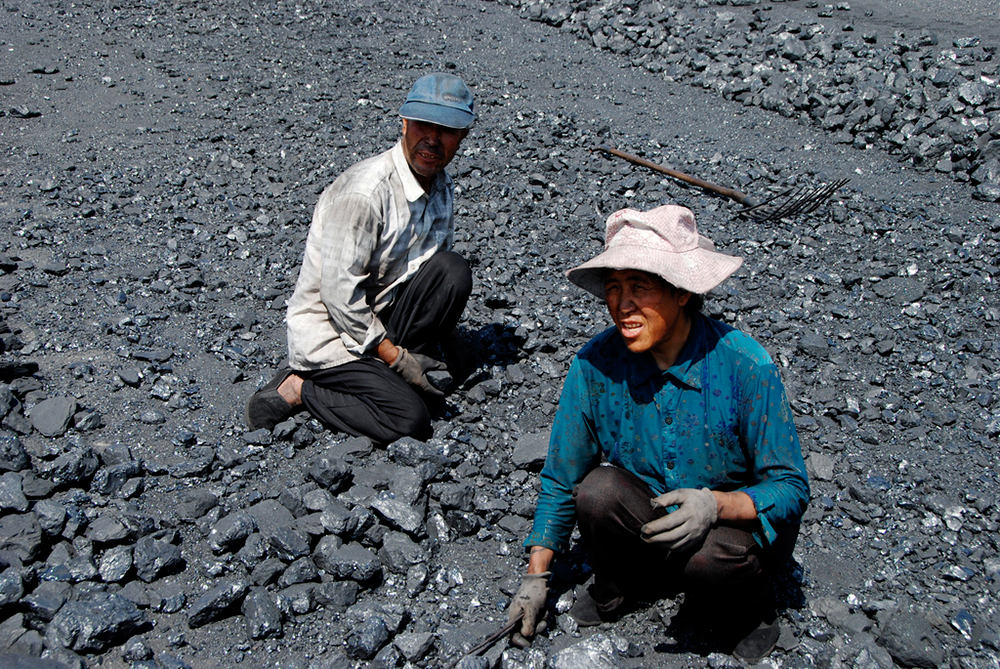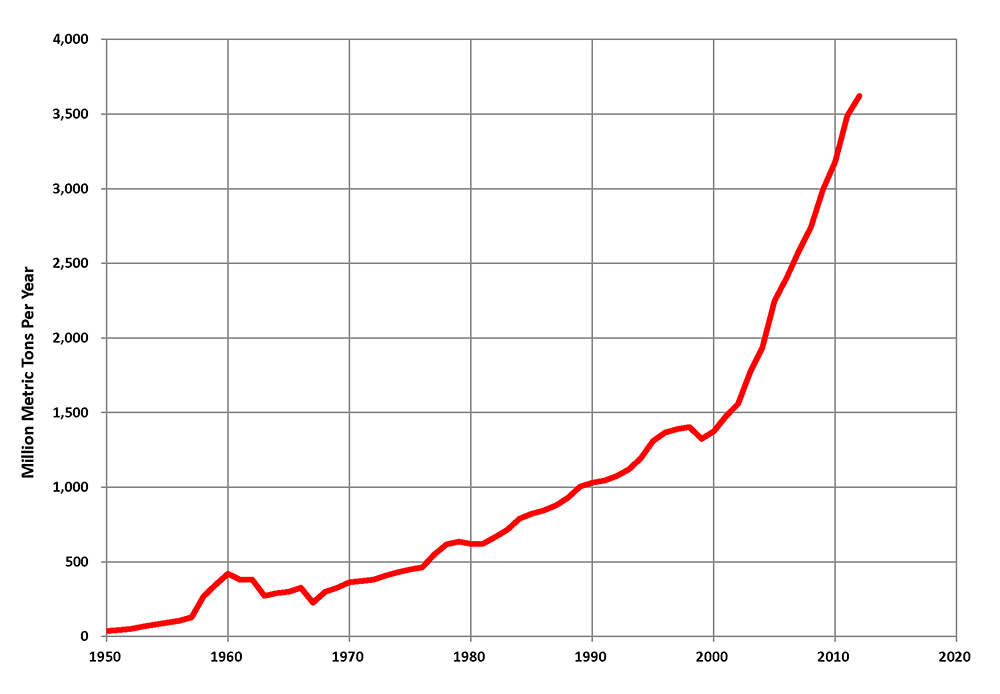China's Energy Efficiency Program Still Promotes Global Warming
Air Date: Week of October 10, 2014

Beijing’s smog (Photo: Kevin Dooley; CC 2.0)
Despite China’s improved energy efficiency in recent years, economics professor Dabo Guan tells host Steve Curwood that rapid growth has led to an overall increase in CO2 emissions.
Transcript
CURWOOD: It's Living on Earth. I'm Steve Curwood. China is the largest CO2 polluter on the planet, just ahead of the United States. And now the world’s most populous nation is pledging to cut the carbon intensity of its economy nearly in half by the end of the decade, by becoming more energy efficient. But Dabo Guan, an economist with the University of East Anglia says rapid growth in China means carbon emissions will still keep rising. Professor Guan joins us now from Harbin, China. Welcome to Living on Earth.
GUAN: Thank you. Thank you so much.
CURWOOD: So, in recent years, China’s been working hard to improve its energy efficiency, particularly its carbon efficiency. How successful has China been at this?
GUAN: Yes, China has made substantial achievements in reducing carbon intensities, but there are problems, of course, in terms of how or the way they’re reducing carbon intensity.
CURWOOD: And those problems are?
GUAN: Because the carbon intensity is not an absolute measure, it’s a relative measure, basically it’s CO2 divided by GDP, so essentially there’s two ways to reduce this figure. One way is to reduce CO2; the other way is to enlarge GDP. Reducing CO2 requires lots of technology improvements, and the technology spillovers, transfers, etc. It’s quite a relatively long and expensive way to do that. Most of the provinces in China, they actually adopt the second way, which is enlarge GDP to reduce carbon intensity. The way they do that, for example, they used to have a small, inefficient coal power plant. They closed down that and replaced it with a large, modern one. In that way, they achieved the efficiency improvements quite significantly, but on the other hand, it benefits local GDP.

Chinese coal workers (Photo: Bert van Dijk; CC 2.0)
CURWOOD: Let me see if I understand the problem. What you’re saying: If there’s a small, dirty inefficient coal plant, and it’s replaced by a much larger, but efficient coal plant that has much more carbon than the original small one, that that gets counted as a plus, under the math of looking at carbon intensity when in fact we're actually raising emissions.
GUAN: Exactly. During 2002 to 2009, Chinese sectors in terms of technology efficiency, they improved 10 percent, but the size of the electricity sectors increased about 10 times, so the overall economic carbon intensity has become, is largely offset by such carbon-intensive production.
CURWOOD: I gather that a lot of these big facilities were put up in accordance with lending from the provincial banks who very much like to do these big coal-fired power plants, which they see as surefire investment.

Despite efforts to reduce their carbon intensity, Chinese coal production has skyrocketed in recent years. (Photo: Plazak; CC 3.0)
GUAN: Yes.
CURWOOD: To what extent is the national government able to change the approach of those banks that’s investing in these huge coal-fired power plants and steel plants and such?
GUAN: Yes, the key reason for the regional governments, pushing the local banks to lend money to the developers to build those heavy industries, is because when you build that you actually create GDP, and the GDP, when they do the performance assessment through the individuals in terms of Chinese officials, GDP has just always come as the priority—always as the first criteria for measure, whether you are suitable to a promotion or not.
CURWOOD: So if I'm hearing you correctly, the demand for products isn't doing this as much as the concern by local officials that they hit the numbers for GDP growth.

Economics Professor Dabo Guan (Photo: University of East Anglia)
GUAN: Exactly.
CURWOOD: So unless this changes, carbon emissions are just going to keep going up and up and up.
GUAN: Well, China is the largest carbon emitter in the world. But to China, the concern is more air pollution and water pollution. You've probably heard that air quality issues in China this is so serious now. When you're dealing with air pollution, it actually creates a co-benefit for CO2 reduction. So therefore, I will say, China can make more effort, or could make some extra commitments other than carbon intensities, trying to have an absolute cap in some of the advanced regions and cities.
CURWOOD: Dabo Guan, is Professor of Economics at the University of East Anglia. He joined us on the line from Harbin, that’s in Yunnan, China. Thank you so much, Professor.
GUAN: Thank you.
Links
Living on Earth wants to hear from you!
Living on Earth
62 Calef Highway, Suite 212
Lee, NH 03861
Telephone: 617-287-4121
E-mail: comments@loe.org
Newsletter [Click here]
Donate to Living on Earth!
Living on Earth is an independent media program and relies entirely on contributions from listeners and institutions supporting public service. Please donate now to preserve an independent environmental voice.
NewsletterLiving on Earth offers a weekly delivery of the show's rundown to your mailbox. Sign up for our newsletter today!
 Sailors For The Sea: Be the change you want to sea.
Sailors For The Sea: Be the change you want to sea.
 The Grantham Foundation for the Protection of the Environment: Committed to protecting and improving the health of the global environment.
The Grantham Foundation for the Protection of the Environment: Committed to protecting and improving the health of the global environment.
 Contribute to Living on Earth and receive, as our gift to you, an archival print of one of Mark Seth Lender's extraordinary wildlife photographs. Follow the link to see Mark's current collection of photographs.
Contribute to Living on Earth and receive, as our gift to you, an archival print of one of Mark Seth Lender's extraordinary wildlife photographs. Follow the link to see Mark's current collection of photographs.
 Buy a signed copy of Mark Seth Lender's book Smeagull the Seagull & support Living on Earth
Buy a signed copy of Mark Seth Lender's book Smeagull the Seagull & support Living on Earth

